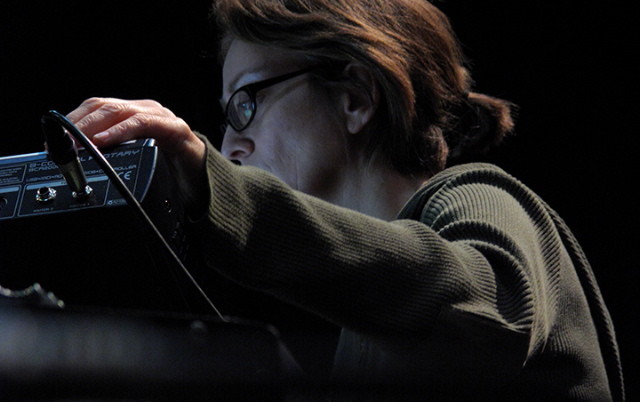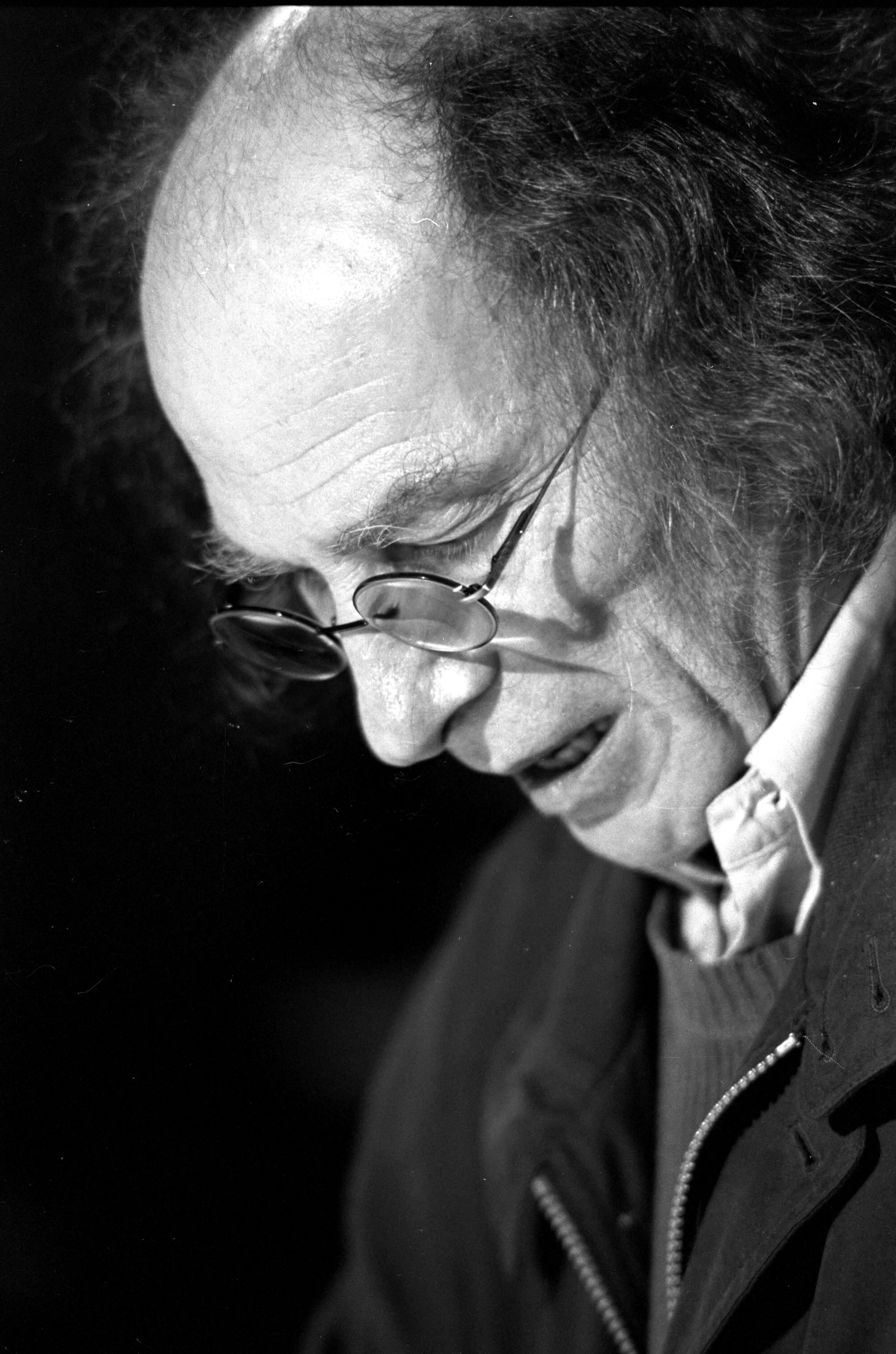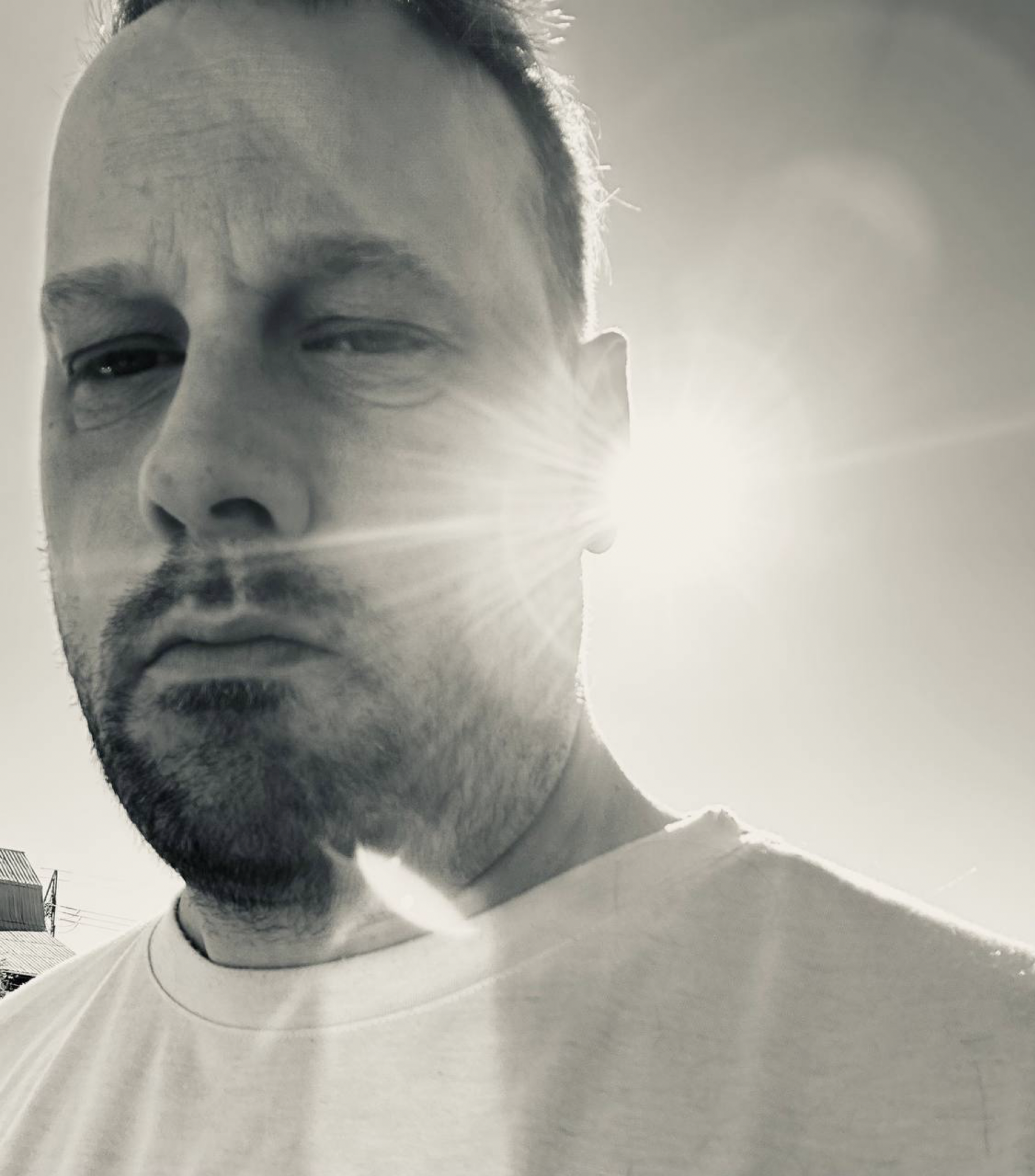October 17, 2024
Day 2 -
8pm

1345 Ave. Lalonde, Montréal, QC H2L 5A9
Get your tickets
Frédéric Janelle (ca)
Frédéric was born in Sherbrooke in 1981. He moved to the Montreal area in 1999 to study computer-assisted musical composition. He then began a career as a sound engineer and studied electroacoustic composition at the Montreal Conservatory of Music from 2006 to 2009. Frédéric draws his inspiration from technology and his visions of the future.
Program
L’Oracle (2024) 8’41”
The Visions of the Oracle.
Credit : Frédéric Janelle
Monique Jean (ca)
Be it electroacoustic music, mixed music, sound installations or improvisations, the music of Monique Jean is engaging a present that happens now. She focuses on the tensions, fractures, and shocks of sound materials to transmute reality into poetry. She works on sound materials as if they were complex organisms animated by forces that keep them in constant evolution.
Since 2012, in search of a harsh, raw sound, she has been integrating analogue and no-input elements to her set-up as sources of instability and unpredictability.
Her works have been selected by several competitions and performed and broadcast in several national and international concerts and festivals, including Multiphonies (Paris, France), Akousma (Montréal), Sonorities (Belfast, Northern Ireland), NYCEMF (New York, USA), The San Francisco Tape Music Festival (USA), Ai-maako (Santiago, Chile), and Elektra (Montréal). In 2012, she was invited for a residency at Fondation Civitella Ranieri in Umbertide (Italy).
electrocd
Program
Tumultes 15’ (2024)
Despite the barriers, walls, censorship and other verticalities that cut the horizon of everyday life, persist in remaining attentive by trying to find a way to you - here or elsewhere, near or far.
Inspired by the works of Adania Shibli (Un détail mineur) and Antoine Wauters (Mahmoud ou la montée des eaux).
Produced with the support of the Research and Exploration program of PRIM and the CAC.

Credit : Monique Bertrand
Horacio Vaggione (ar/fr)
Horacio Vaggione (Argentina, 1943), has lived in Paris since 1978. Composition studies at the National University of Cordoba, then doctorate in musicology at the University of Paris VIII. Studied computer music at the University of Illinois (1966). Co-founder of the Center for Experimental Music at the University of Cordoba (1965-68), member of the electronic music group ALEA of Madrid (1969-73), he worked in France at IRCAM, at INA- GRM, at GMEB. Resident in Berlin (DAAD, 1987-1988). Between 1989 and 2012 he was full professor (composition and research) at the University of Paris VIII, where he is currently professor emeritus.
electrocd | ︎ | ︎
Program *
Gymell I (2003) 9’20 followed by Gymell III (2024) 16’00
We can think of the active (corpuscular) principle of these Gymel by drawing inspiration from the words of Bachelard (1932): “The corpuscle has no more reality than the composition which makes it appear”.
And again: “Suffice it to say that the existence of the corpuscle has a root in all space.”
This explains not only the unreality of the corpuscle —if it is not inhabited by the composition— but also the reality of the space where it appears as continuity.
As for the works: Gymel I was produced in 2003 at the CICM studio, University of Paris VIII. It subsequently spawned several avatars, includingGymel III, created recently, in 2024, at the ICST (University of the Arts) of Zurich.
The two Gymel gathered here are Canadian premieres.
* For reasons beyond our control, the works will be spatialized by the composer and artistic director of the festival, Louis Dufort. The festival team wishes Mr. Vaggione a speedy recovery. 🫶

Credit : N. Azounoff (GRM)
